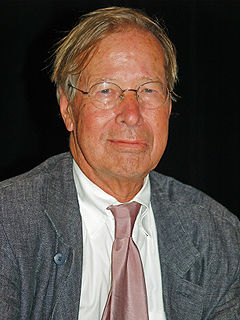A Quote by Leon Gambetta
Great ability without discretion comes almost invariably to a tragic end
Quote Topics
Related Quotes
Is it not tragic, for example, that while in the last World War almost everyone believed it was the war to end all wars and wanted to make it so, now in this Second World War almost no writer that I have read dares even suggest that this is the war to end all wars, or act on that belief? We have lost the courage to hope.
When asked, "How do you write?" I invariably answer, "One word at a time," and the answer is invariably dismissed. But that is all it is. It sounds too simple to be true, but consider the Great Wall of China, if you will: one stone at a time, man. That's all. One stone at a time. But I've read you can see that motherfucker from space without a telescope.
I can scarcely contemplate a greater calamity that could befall this country, than be loaded with a debt exceeding their ability ever to discharge. If this be a just remark, it is unwise and improvident to vest in the general government a power to borrow at discretion, without any limitation or restriction.
Down through the years my face has been called a sour puss, a dead pan, a frozen face, The Great Stone Face, and, believe it or not, "a tragic mask." On the other hand that kindly critic, the late James Agee, described my face as ranking "almost with Lincoln's as an early American archetype, it was haunting, handsome, almost beautiful." I can't imagine what the great rail splitter's reaction would have been to this, though I sure was pleased.
Without beauty a girl is unhappy because she has missed her chance to be loved. People do not jeer at her, they are not cruel to her, but it is as if she were invisible, no eyes follow her as she walks. People feel uncomfortable when they are with her. They find it easier to ignore her. A girl who is exceptionally beautiful, on the other hand, who has something which too far surpasses the customary seductive freshness of adolescence, appears somehow unreal. Great beauty seems invariably to portend some tragic fate.
Though this motion for a new trial is an application to the discretion of the Court, it must be remembered that the discretion to be exercised on such an occasion is not a wild but a sound discretion, and to be confined within those limits within which an honest man, competent to discharge the duties of his office, ought to confine himself. And that discretion will be best exercised by not deviating from the rules laid down by our predecessors; for the practice of the Court forms the law of the Court.
Ability is not something to be saved, like money, in the hope that you can draw interest on it. The interest comes from the spending. Unused ability, like unused muscles, will atrophy. It is tragic to realize that the majority of human beings, even the so-called educated, call upon only the smallest fraction of their potential capacity. They leave many talents dormant. They fail to develop their mental qualities. They are almost unaware of the degree of energy upon which they might call to build a full and rewarding life.












































